-
 Art of Wellness Acupuncture & Traditional Chinese Medicine (TCM)11704 Wilshire Blvd, Suite 295, Los Angeles, CA, 90025
Art of Wellness Acupuncture & Traditional Chinese Medicine (TCM)11704 Wilshire Blvd, Suite 295, Los Angeles, CA, 90025
myartofwellness@gmail.com310-451-5522 Office Hours
MonClosedTue7:30 am --4 pmWed7:30 am --4 pmThu7:30 am -- 4 pmFri7:30 am -- 4 pmSat7:30 am -- 4 pmSunClosedOur office opens from Tuesdays to Saturdays 7:30 am to 4 pm, will be closed on Memorial day, Independent day, Labor day, Thanksgiving day, Christmas and New year.
-
Recent Posts
- How to Treat Rosacea With Acupuncture and TCM
- How to Treat Perioral Dermatitis With Acupuncture and TCM
- Lymphatic Drainage With Acupuncture and TCM
- How to Treat Turf Toe With Acupuncture
- How to Treat Nerve Pain With Acupuncture and TCM
- How to Treat Watery Eyes With Acupuncture and TCM
- How to Treat Ovarian Cysts With Acupuncture and TCM
- How to Treat Dystonia With Acupuncture and TCM
- Can Acupuncture Help Bad Breath?
- How to Treat Atopy with Acupuncture and TCM
- Plantar Fasciosis Treatment With Acupuncture and TCM
- How to Protect Yourself When Air Quality Is Poor
- How to Treat Spinal Headache With Acupuncture and TCM
- How to Treat Sarcoidosis With Acupuncture and TCM
- How to Treat Flu With Acupuncture and TCM
- Chinese New Year 2025 Year of the Snake
- Sign up to receive news and updates and get my free report:“The Top 10 Reasons to Try Acupuncture”

July 2025 M T W T F S S 1 2 3 4 5 6 7 8 9 10 11 12 13 14 15 16 17 18 19 20 21 22 23 24 25 26 27 28 29 30 31
Weight Loss
How to Treat Diverticulitis With Acupuncture and TCM
By Qineng Tan, L.Ac., Ph.D. and Xiaomei Cai, L.Ac., Ph.D.
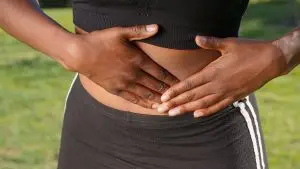
Pain in lower left abdomen? Stomach pain or pain in lower abdomen? Nausea, vomiting? Constipation or diarrhea? These may be diverticulitis symptoms. Acupuncture and TCM offer a way to help relieve diverticulitis pain and restore normal bowel function.
Diverticulosis refers to the presence of small sacs or pouches of tissue inside the large intestine, most often the colon (colonic diverticulitis), which are called “diverticula.”
Diverticulitis refers to the condition that occurs when the sacs become inflamed and infected. Diverticulitis causes pain and other symptoms like bloating and pain in left abdomen that might feel better after you pass gas or have a bowel movement.
Diverticular disease is becoming more and more common and is particularly widespread amongst older people, with at least half of all people over the age of 60 showing signs of diverticulosis.
While medical science has not definitively determined why people develop diverticulosis, it is believed to be due to eating a diet that is low in fiber and high in fatty foods like red meat.
Sedentary lifestyle (lack of exercise), being overweight or obese, smoking cigarettes, and regular use of anti-inflammatory medications or OTC pain medications (NSAIDs) may also be factors in the development of diverticulosis.
Many people have diverticulosis but are unaware of it because they don’t have any symptoms. It is only when the diverticula become infected and inflamed that diverticulitis treatment becomes necessary.
Acupuncture and TCM offer an alternative diverticulitis treatment that can help relieve pain and reduce inflammation in the colon.
Top 5 Diverticulitis Symptoms

Diverticulitis symptoms are believed to occur because something like a bit of undigested food or stool becomes trapped inside one of the diverticula, and then bacteria start to grow, causing an infection.
While a person can have diverticulosis for a long time without any signs, symptoms of diverticulitis may come on suddenly and be quite severe.
The common signs of diverticulitis include:
- Abdominal pain or cramping, particularly pain in lower left abdomen—although in Asian countries, pain in lower right abdomen seems to be more prevalent. The pain may be constant, or it can come and go.
- Nausea and/or vomiting
- Fever and/or chills
- Constipation or diarrhea
- Rectal bleeding, bloody stool
Sometimes diverticulitis may cause a total lack of appetite and sudden weight loss, as a person just stops feeling like eating anything.
Diverticulitis can sometimes lead to more serious complications, like an abscess—which is when the infected area swells and fills with pus—or perforation of the bowel wall. These kinds of issues may require surgery.
Diverticulitis Treatment
Some other gastrointestinal disorders can present with symptoms that are similar to those of diverticulitis, such as: colitis or inflammatory bowel disease, IBS (irritable bowel syndrome), or bowel obstruction. Gynecological problems like endometriosis, an ovarian cyst, or an ectopic pregnancy could also cause severe pain in the lower left abdomen. A UTI could also cause acute abdominal pain.
Diagnosis of diverticulitis will usually begin with a doctor feeling the abdomen for signs of tenderness, then they will order tests (blood tests, urine tests, and/or stool tests) to check for infection. Once other problems have been ruled out, a CT scan may show the diverticula (infected sacs/pouches in the large intestine).
There is some debate about when to perform a colonoscopy in cases of diverticulitis, as the procedure can cause perforations of the intestinal lining to become worse. Usually, a colonoscopy is recommended several weeks after a person has recovered from an acute attack of diverticulitis.
Because diverticulitis is usually caused by an infection, the most common medical treatment is a course of antibiotics, along with rest and pain relievers, until the acute symptoms have abated. A liquid diet may be indicated until the situation improves, with the gradual reintroduction of solid foods.
Recommendations will usually include that a person quits smoking (if they smoke) and makes changes in their diet: especially eating less meat and fatty foods and increasing fiber intake. It used to be common for doctors to tell their patients not to eat foods like popcorn, seeds, or nuts, under the assumption that small, hard kernels might become trapped in the diverticula and cause irritation. However, more research has shown that eating these types of foods does not seem to cause flare-ups of diverticulitis.
If these treatments do not help to relieve diverticulitis pain, or if a complication like an abscess or perforation in the colon wall develops, surgery may be necessary. The most common surgery for diverticulitis is a colon resection, which involves removing the part(s) of the large intestine that have been damaged. Sometimes it is not possible to repair the colon completely, and in these cases, a person may have to have a colostomy.
Acupuncture and TCM offer an alternative or adjunct treatment for diverticulitis that can help reduce inflammation in the bowel and relieve abdominal pain.
Can Acupuncture Help Diverticulitis?

An acupuncturist will make a TCM diagnosis based on where and what kind of abdominal pain and other diverticulitis symptoms a patient is experiencing. According to TCM theory, pain and problems with the digestive organs can be related both to stagnant Qi (life energy) or blood in that area, and the presence of a pathogenic force like dampness, heat, or cold.
The quality of diverticulitis pain and how it changes when you eat or move your bowels will provide clues as to what the root cause is.
In TCM, the spleen is considered to be responsible for turning nutrients into energy; when it is not functioning well, a person may have diarrhea. Strengthening the spleen is usually an important part of TCM treatment for diverticulitis and other digestive disorders.
Your acupuncture practitioner can help relieve symptoms like nausea, constipation, diarrhea, bloating, and stomach pain, while also helping to heal and strengthen the lining of the intestines and reducing inflammation. Boosting immune function will help prevent further infections.
It is generally necessary for a person with diverticulosis to make changes in their dietary habits. While increasing intake of fiber and fluids is important, there are probably even more specific foods that are triggering the dysfunction of the gastrointestinal system, creating excess heat or dampness in the internal organs. TCM nutrition views all foods as having properties that either cool or warm the body. So, your acupuncturist will be able to advise you on what food program will work best to balance your health.
In general, nourishing broths, soups, and well-cooked vegetables with lean proteins and whole grains with plenty of fiber are the best diet for people with diverticulitis. Avoid cold, raw foods, fatty foods, red meat, and dairy.
Acupuncture Near Me for Diverticulitis In West Los Angeles
Acupuncture and TCM provide an effective way to treat abdominal pain and gastrointestinal disorders of all kinds. At Art of Wellness, we have over 35 years of experience helping people find pain relief and improve their digestive health.
*This article is for education from the perspective of Traditional Chinese Medicine only. The education provided by this article is not approved by FDA to diagnose, prevent, treat and cure human diseases. It should not stop you from consulting with your physician for your medical conditions. Traditional Chinese Medicine is based on Qi, which is an invisible force that usually cannot be observed by modern science. Because science focuses on testing ideas about the natural world with evidence obtained through observation, these aspects of acupuncture can’t be studied by science. Therefore acupuncture and Chinese herbs are often not supported by double-blind, randomized trials, and they are considered alternative medicine therapies in the United States.
How to Treat Diarrhea With Acupuncture and TCM
By Qineng Tan, L.Ac., Ph.D. & Xiaomei Cai, L.Ac., Ph.D.

Chronic diarrhea, explosive diarrhea, diarrhea after eating? Diarrhea may be related to IBS (irritable bowel syndrome), or an IBD (inflammatory bowel disease), or a reaction to a food allergy, parasites, or stress. Acupuncture and TCM offer an alternative diarrhea treatment, so you can get relief from stomach pain and diarrhea.
Why Do I Have Diarrhea?
There can be many different causes of diarrhea, also known as loose stool. Acute diarrhea, which only lasts one or two days, will usually go away on its own.
Watery diarrhea that lasts a few days is usually due to food poisoning. Eating something that was rotten, or not cooked properly to destroy bacteria, can cause vomiting and diarrhea. Watery diarrhea can also happen when you have some type of viral infection, such as the “stomach flu.”
Chronic diarrhea, or persistent diarrhea, which lasts for weeks, or bouts of diarrhea that come and go frequently, may be related to IBS symptoms, IBD symptoms, Celiac disease, SIBO, or some other problem.
More than 6% of adults in the U.S. report having chronic diarrhea. Chronic diarrhea in children is also a serious health concern worldwide.
Top 10 Causes of Diarrhea
Diarrhea is a common condition that everyone experiences sometimes. Usually it is temporary, but it can become persistent and serious enough to require diarrhea treatment. The most common reasons a person experiences loose bowel movements include:
- Bacterial infection, traveler’s diarrhea, food poisoning, unsafe drinking water
- Viral infection, such as rotavirus, viral gastroenteritis, stomach flu
- Parasite infection, such as giardiasis
- Food allergy, food intolerance, food sensitivity, Celiac disease
- Reaction to medications like antibiotics, antidepressants, or Metformin
- Reaction to radiation therapy, cancer treatment
- IBS – diarrhea, constipation, and stomach cramps are common IBS symptoms
- IBD – colitis or Crohn’s disease, inflammatory autoimmune disorders that affect the gut
- Malabsorption of food, poor absorption of nutrients
- Menstrual cycle or Perimenopause – changes in hormones/estrogen can cause diarrhea
Certain foods can cause diarrhea, including: too much coffee, artificial sweeteners like mannitol and sorbitol, and red food coloring. Magnesium supplements can also cause loose stools.
If diarrhea lasts more than a few days, it is important to seek healthcare advice. Chronic diarrhea can lead to dehydration and fatigue, and may be happening because of some more serious condition that needs to be addressed.
What Causes Chronic Diarrhea?

Bouts of diarrhea that keep recurring can be a symptom of disorders such as:
- IBD (inflammatory bowel disease) – the most common IBDs are ulcerative colitis and Crohn’s disease. IBD symptoms usually include bloody diarrhea and abdominal pain. IBDs can cause chronic or recurring diarrhea, which can lead to dehydration, fatigue, and weight loss. IBDs can be mild, or so serious that they cause long-lasting damage to the gastrointestinal tract.
- Ulcerative colitis – an autoimmune disorder that causes inflammation and ulcers, or open sores, in the lower gastrointestinal system, including the colon and rectum.
- Crohn’s disease – an autoimmune disorder that causes inflammation mainly in the small intestine, but can affect any part of the GI tract.
- IBS – Irritable bowel syndrome can seem similar to IBDs, also causing recurring bouts of diarrhea and stomach pain. However, IBS is considered a functional gastrointestinal disorder. It is quite common. People with IBS symptoms may have alternating bouts of diarrhea and constipation. People who tend to have more diarrhea-dominant IBS have “IBS-D.”
- Celiac disease – an autoimmune disorder in which a reaction to eating wheat gluten causes serious inflammation of the GI system, leading to abdominal pain, bloated stomach, diarrhea, malnutrition, fatigue, and skin rashes.
With these conditions, diarrhea is brought on periodically—sometimes alternating with constipation, as in some cases of IBS—by factors having to do with the diet or stress, or with autoimmune processes.
Some surgeries that affect the gastrointestinal organs—like gastric bypass, gastric sleeve, or gallbladder removal—can cause chronic diarrhea.
Chronic diarrhea can be caused by an inability of the intestinal walls to absorb nutrients, and/or of the walls of the colon to absorb liquid. It may also be due to excessive action of the intestine in terms of peristalsis, the squeezing of the intestine to move matter through.
Diarrhea Treatment
Acute diarrhea usually goes away on its own in a day or two. Often, people will use OTC remedies for diarrhea and stomach pain, such as Immodium or Pepto-Bismol.
If you have been experiencing persistent diarrhea and seek medical advice, a doctor will perform tests to figure out what is causing the diarrhea, and will offer electrolyte fluids to help with dehydration. Blood tests or a stool test will show if the diarrhea is due to a bacterial infection or parasitic infection.
If chronic diarrhea is determined to be related to a medication you are already taking, then that may need to be adjusted.
Discovery of IBS or an IBD usually involves more diagnostic testing, including a colonoscopy and/or endoscopy, to see if there is inflammation or blockage in the GI tract.
Medical treatment for IBS may involve being offered antispasmodic medications that relax the intestinal walls and slow down the movement of the bowels and can help relieve stomach cramps and abdominal cramping. Dietary changes and behavioral therapy may be recommended.
Pharmacological treatment for IBDs like colitis and Crohn’s usually involves taking a combination of anti-inflammatories and immunosuppressants, to reduce inflammation in the gut and to block the inappropriate autoimmune responses that are triggering the inflammation. Unfortunately, steroids and medications like Xeljanz can cause other side effects and health problems.
Medical treatment for chronic diarrhea may help relieve symptoms and reduce the frequency of bouts of diarrhea, but it does not necessarily address the underlying causes of diarrhea.
Acupuncture and TCM offer an effective alternative treatment for diarrhea that is more suited to each patient’s individual situation.
Can Acupuncture Help Diarrhea?
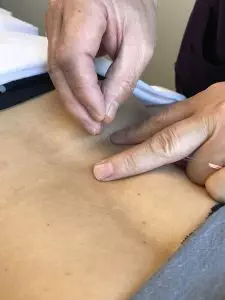
Chronic diarrhea, according to TCM theory, is usually considered to be related to the health of the spleen. In TCM, the organ systems all interact harmoniously, unless there is imbalance. The imbalance of one organ system may throw off other systems, leading to various symptoms.
In TCM, the spleen is responsible for breaking down the nutrients from food and converting them into energy. If the spleen is not functioning properly, watery stool is often the result. Diarrhea, stomach pain, and other symptoms may differ from person to person, depending on how the spleen is interacting with the liver, stomach, or kidneys.
Common Chinese Medicine diagnosis patterns for chronic diarrhea include:
- Spleen Deficiency with Liver Qi stagnation: mucus in the stool, abdominal pain, cramping, gassiness, bloated stomach, irritability, and feelings of depression
- Spleen Deficiency with Stomach deficiency: watery stools, poor appetite, feeling full quickly, stomach distended after eating, pallor, and fatigue
- Spleen Deficiency with Kidney Deficiency: diarrhea in the morning, partially digested food in the stool, abdominal pain, lower back pain, knee pain, feeling cold
Acupuncture treatment for diarrhea, which may include moxibustion and herbs, aims to support the health of the spleen and other organs. Acupuncture has been shown to help relieve diarrhea and constipation related to IBS. Acupuncture treatment can also help with reducing stress and anxiety, which are common triggers for IBS symptoms.
Acupuncture can also help with diarrhea due to IBDs like ulcerative colitis and Crohn’s disease by reducing inflammation and helping to balance immune responses. TCM treatment for Crohn’s disease or colitis, incorporating nutrition and herbal supplements, can help improve the gut biome and strengthen the lining of the intestinal walls.
Acupuncture for Diarrhea Near Me, Los Angeles, West L.A., and Santa Monica
TCM treatment with an experienced acupuncturist near me can be very beneficial for anyone dealing with ongoing gastrointestinal distress. Both adults and children can find relief from diarrhea, constipation, stomach cramps, bloating, and abdominal pain related to conditions like IBS, IBDs, or celiac disease through acupuncture and herbs. At Art of Wellness, we have over 30 years of experience helping people with gastric disorders of all kinds.
*This article is for education from the perspective of Traditional Chinese Medicine only. The education provided by this article is not approved by FDA to diagnose, prevent, treat and cure human diseases. It should not stop you from consulting with your physician for your medical conditions. Traditional Chinese Medicine is based on Qi, which is an invisible force that usually cannot be observed by modern science. Because science focuses on testing ideas about the natural world with evidence obtained through observation, these aspects of acupuncture can’t be studied by science. Therefore acupuncture and Chinese herbs are often not supported by double-blind, randomized trials, and they are considered alternative medicine therapies in the United States.
How to Treat Huntington’s Disease With Acupuncture and TCM
By Qineng Tan, L.Ac., Ph.D. and Xiaomei Cai, L.Ac., Ph.D.
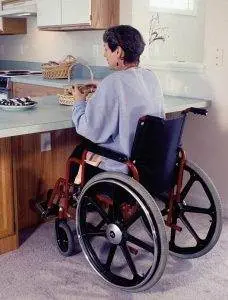
Huntington’s disease is a rare genetic disorder that causes progressive neurodegenerative disease. A neurological disorder, Huntington’s causes damage to brain cells, which leads to physical symptoms like tremor, cognitive problems, and mental disorders, including feelings of depression.
Signs of Huntington’s disease (HD) can begin to show up at any time after age two, and in some cases, a child may develop juvenile Huntington’s disease. Most often, though, a person does not begin to have symptoms of Huntington’s disease until adulthood, usually when they are in their 30s or 40s. Huntington’s is a progressive disease in which symptoms become increasingly severe over time.
Medical science does not currently have a cure for Huntington’s, nor a treatment that will halt the progression of Huntington’s disease. Patients may receive treatment in the form of medications and physical therapy to help control physical symptoms like shaking hands and involuntary movements. They may also be prescribed psychiatric medications to try to help with depression and anxiety.
Acupuncture and TCM can be an effective adjunct and alternative treatment for Huntington’s disease, helping to protect and stimulate the nervous system. TCM can also help address mental health and emotional disorders, like depression, anxiety, and mood swings.
Huntington’s Disease Symptoms
People with Huntington’s disease may start off having a variety of mild symptoms. Over time, the symptoms may change, with some coming or going, and some getting worse. Signs of Huntington’s disease can be related to involuntary movements of the body, cognitive decline that affects a person’s thinking processes, and psychiatric disorders that cause emotional upset. Some of the most common symptoms of Huntington’s disease include:
- Uncontrollable movements: involuntary jerking of the limbs, or writhing, also known as chorea
- Stiff limbs, muscle stiffness, neck stiffness
- Tremor, shaky hands, difficulty holding things
- Slow or unusual eye movements
- Problems with balance or walking
- Difficulty swallowing
- Speech problems, slurred speech
- Having a hard time focusing on a a task
- Having a hard time finding the right words or processing information
- Getting completely caught up with a task or thought pattern
- Impulsive behavior or emotional outbursts
- Lack of awareness of how one is behaving or one’s own changing abilities
- Feelings of apathy, sadness, depression, suicidal ideation
- Manic behaviors or OCD (obsessive-compulsive disorder)
- Trouble sleeping, insomnia
- Extreme fatigue
- Weight loss
Symptoms of Huntington’s disease worsen gradually over time, until ultimately, a person will need assistance to move and eat.
What Are the 5 Stages of Huntington’s Disease?
Huntington’s is a progressive disorder of the brain that causes symptoms to increase in severity over the course of several years. The progression from experiencing mild symptoms to needing assistance due to disability could take 10 years, or a person might live another 30 years.
Sometimes you will hear doctors refer to 3 stages of Huntington’s Disease, or the following 5 stages:
- Preclinical Stage – during this time, a person with Huntington’s may begin to notice mood swings, irritability, and other emotional and cognitive issues beginning to develop, but they have not yet been diagnosed with Huntington’s.
- Early Stage – as physical symptoms like tremors and trouble with eating and sleeping begin to become more and more noticeable, a person will seek medical help and be diagnosed. At this point, they can still carry on with most normal activities without help.
- Middle Stage – during the middle stages of Huntington’s a person will begin to need assistance with things like driving and domestic tasks, as they may not be able to coordinate movements reliably or think through problems or take in new information.
- Late Stage – as Hungtington’s disease progresses further, a person may have memory loss, dementia, and changes in personality. They will likely be bedridden and need help with eating, possibly requiring a feeding tube because of trouble swallowing.
- End of Life Stage – there comes a point when a person with Huntington’s will need end of life care, either in a hospital or at home, when they will need to be as comfortable as possible. The most common cause of death with Huntington’s is pneumonia, which can happen when a person aspirates food particles into the lungs.
How is Huntington’s Disease Inherited?
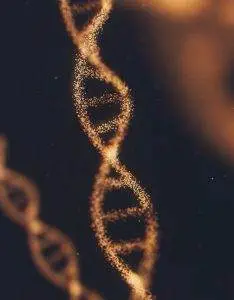
Huntington’s disease is a type of autosomal dominant disorder, which means that a person only needs to inherit one dominant gene from one parent in order to inherit this disorder. If a person has HD, there is a 50% chance that they will pass it on to a child. If a child of a person with HD does not inherit the gene, and therefore does not have HD, then that means they will not pass it on to their children. It is rare, but possible, for a person to be born with a new mutation in the specific gene, and so does not actually inherit HD from a parent.
Because HD typically does not begin to show up until close to middle age, some people who know that they may have the genetic mutation will have genetic testing for Huntington’s disease. This test will tell most people whether or not they will begin to develop Huntington’s symptoms as they age. However, there is a “gray area,” in which a person may have some of the mutated sequencing in their genetic makeup, but not enough to necessarily lead to the development of the disease. These people can still pass on the mutation to their children, and they may have a less severe form of Huntington’s, and/or not develop symptoms until later in life.
Can Acupuncture Help Huntington’s Disease?
Scientific research has been demonstrating more and more that acupuncture can help with many conditions by maintaining the health and connectivity of brain cells and nerve cells. Cells are constantly going through processes of generation and degeneration. The stimulation of certain acupoints has been shown to have a positive effect on these processes, which can be beneficial for people with neurological disorders like HD and Parkinson’s.
Even though we know that Huntington’s and Parkinson’s are specifically related to protein production, we also know that disease is not merely about one small, isolated thing happening in the body. We must take the whole person into account. Stress and many other factors also play a role in how a disease affects each individual. Acupuncture can be a helpful modality that reduces stress in the body and facilitates regeneration and protection of cells.
With TCM, we are able to address the physical, mental, and emotional aspects of Huntington’s disease all at the same time.
Chinese herbs have traditionally been used to help symptoms such as tremors, stiff limbs, muscle weakness, and slow movements. While from the medical point of view these problems are related to the nervous system, in TCM theory we also see them as being related to deficiencies in the kidney Qi, and excess wind. Therefore, herbs that help strengthen the Kidneys and dispel wind may be used in different combinations to treat conditions like Huntington’s disease.
Acupuncture treatment has been shown to help reduce tremors and shaky hands. One study showed that Chinese herbal preparations were effective at helping to reduce involuntary movements. Another study showed that herbs helped with the normal production of proteins and brain cell function.
Neurological Treatment With Acupuncture

Acupuncture and TCM can help with many different kinds of neurodegenerative disorders, whether they are caused by genetics, autoimmune disease, or some other neurological problem.
Neurodegenerative diseases cause the degeneration and death of neurons, or brain cells that communicate with the nervous system. In that sense, Huntington’s disease bears some similarities to other neurodegenerative diseases like:
- Parkinson’s disease
- Alzheimer’s disease
- ALS (Lou Gehrig’s disease)
- Spinal muscular atrophy
- Essential Tremor
- Multiple Sclerosis (MS)
- Bell’s Palsy
- Guillain-Barre syndrome
Many of these conditions can be helped with acupuncture, which is known to help improve the health of the brain, nerves, spinal cord, and the electrical impulses that create connectivity and functionality in the movements of the musculoskeletal system. TCM modalities can also help to relieve stress, improve sleep, boost cognitive function, and regulate mood swings.
Acupuncture Near Me for Huntington’s Disease, Los Angeles Area
Huntington’s disease is a progressive illness, and it becomes harder and harder for a person with HD to communicate what they are feeling. People with Huntington’s may experience both physical and emotional pain. Patients with Huntington’s need a caring team of healthcare providers who can help treat the disease, but also help their emotional and mental health.
At Art of Wellness, we have over 30 years of experience helping people with neurodegenerative disorders feel more comfortable and live the fullest life possible.
*This article is for education from the perspective of Traditional Chinese Medicine only. The education provided by this article is not approved by FDA to diagnose, prevent, treat and cure human diseases. It should not stop you from consulting with your physician for your medical conditions. Traditional Chinese Medicine is based on Qi, which is an invisible force that usually cannot be observed by modern science. Because science focuses on testing ideas about the natural world with evidence obtained through observation, these aspects of acupuncture can’t be studied by science. Therefore acupuncture and Chinese herbs are often not supported by double-blind, randomized trials, and they are considered alternative medicine therapies in the United States.
How to Treat Pneumonia Symptoms With Acupuncture and TCM
By Xiaomei Cai, L.Ac., Ph.D. & Qineng Tan, L.Ac., Ph.D.
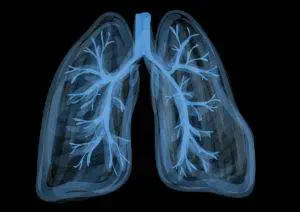
Persistent cough with green or yellow mucus? Chest pain when you cough? High fever, sweating, trouble breathing? It’s important to know the signs of pneumonia, a serious lung infection that can be caused by bacterial infections or viruses like the flu, COVID-19, or even the common cold. You should seek medical help if you believe you have pneumonia; acupuncture and herbs can be considered as integrative care to help relieve symptoms of pneumonia.
The term pneumonia refers to an infection in the lungs that causes inflammation in the alveoli, or air sacs. These air sacs are clustered like fruits around the ends of the branches of the bronchial tubes that extend deep into the lungs. The alveoli inflate and deflate like tiny balloons. They are responsible for taking the oxygen from the air you inhale and depositing it into the bloodstream. When they become inflamed and filled with fluid due to infection, it is hard to breathe. If pneumonia infection is so severe that your body is not getting enough oxygen, then it can become quite dangerous.
Pneumonia can be caused by a variety of infectious bacteria or viruses, and often develops after, or in the tail end, of some other type of illness. A pneumonia infection can range in seriousness from mild to very severe. Bacterial pneumonia requires treatment, especially for people who are considered high risk, or it can be potentially life-threatening. Acupuncture and TCM offer an effective adjunct to conventional pneumonia treatment, allowing people to recover more quickly and fully.
Early Signs of Pneumonia
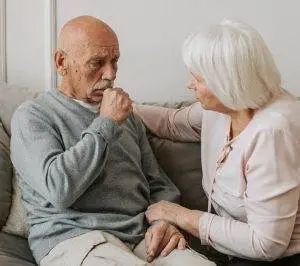
In many cases, you start out having a cold, flu, or some other illness, and then it “turns into” pneumonia, as your lungs become inflamed and filled with pus or mucus. Symptoms of pneumonia include:
- Cough with green or yellow mucus
- High fever
- Sweating
- Trouble breathing, breathing fast
- Fatigue
- Fast heart beat
- Chest pain, especially when coughing
- Feeling confused or delirious
- Lips and/or nails turn blue
- Loss of appetite
Signs of pneumonia in children may be different that symptoms of pneumonia in adults. There may be coughing, wheezing and high fever, but there may also be vomiting and/or diarrhea, especially if the infection is in the lower part of the lungs. Children are at risk for becoming dehydrated under these circumstances.
Walking pneumonia symptoms are generally milder than other types of pneumonia, similar to symptoms of the common cold, like a low grade fever and hacking cough. A person may not feel so seriously ill that they can’t go about normal activities: hence the name “walking pneumonia.”
Pneumonia can affect just one one lung, or both. When both lungs are infected, it is called bilateral pneumonia, or double pneumonia. This does not necessarily mean the case is more severe.
Is Pneumonia Contagious?
Some types of pneumonia are caused by exposure to bacteria or viral particles in the air or on surfaces. Germs that cause colds and flu can lead to some people developing pneumonia, while other people could be exposed to those same germs and not get pneumonia. It really depends on a person’s constitutional health and immune system.
Other kinds, like fungal pneumonia or aspiration pneumonia, are not caught through contagion. They develop because of some substance, other than germs, getting into the lungs.
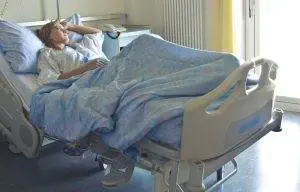
Some types of bacterial pneumonia would not be passed from person to person in normal day-to-day contact, but they may occur when a person is in a weakened state and/or an institutional setting. For example, klebsiella pneumoniae is a type of bacteria that normally lives in the intestines and doesn’t cause illness. However, in a hospital, it is possible to be exposed to this type of bacteria via a worker’s hands or contaminated equipment, such as a catheter or ventilator. If this bacteria then reaches the lungs, it can cause pneumonia symptoms.
Many people “catch” pneumonia when they are in a hospital or rehab setting. Sometimes, people develop pneumonia after being on a ventilator as treatment for some other illness or while recovering from surgery. When this happens, it is called hospital-acquired pneumonia, or health care-acquired pneumonia.
Top 5 Pneumonia Causes
Pneumonia can be caused by various types of infections: bacterial, viral, or fungal.
- Bacterial Pneumonia – also called pneumococcal pneumonia, or streptococcus pneumonia, this is the most common type of pneumonia, and is caused by strep germs that cause upper respiratory illnesses. Almost a million Americans get this kind of pneumonia every year. It can happen at the tail-end of a cold or flu, or after having surgery or being hospitalized for some other reason. People with respiratory problems like asthma or emphysema are at higher risk, as are people who are immunocompromised.
- Viral Pneumonia – this is caused by an influenza virus or respiratory syncytial virus (RSV). This is the type that children may get more often. If a person who already has heart disease or lung disease, or someone who is pregnant, develops pneumonia after a flu, it can be very dangerous.
- Mycoplasma Pneumoniae (Walking Pneumonia) – this type of pneumonia is caused by a bacterial strain. This usually affects younger people who are living, working, or going to school, and is often mild enough that people think they just have a cold. This is sometimes called “atypical pneumonia,” but that doesn’t mean it isn’t common.
- Fungal Pneumonia – it is possible to get this kind of pneumonia if you are exposed to certain fungi in the environment, like those that live in soil and cause “valley fever,” or fungi that are found in bird droppings.
- Legionnaires Disease – legionella is a bacteria that can live in water or soil, and is sometimes present in plumbing, air conditioning systems, pools, or jacuzzis. People can sometimes breathe it in while gardening. If an at-risk individual breathes in this bacteria, they may develop a kind of pneumonia that also causes body aches. In some cases, people may go into septic shock or kidney failure.
People who have weakened immunity due to conditions like HIV/AIDS, or because they are going through chemotherapy for cancer, are at heightened risk for developing pneumonia, as are people who have trouble swallowing due to neurological conditions like stroke, Alzheimer’s disease/dementia, Parkinson’s disease, or ALS.
Smoking or using other drugs can also increase the risk of aspiration pneumonia, which can occur if a person breathes something–such as saliva, vomit, or food particles–into their bronchial tubes instead of swallowing it.
People with pre-existing lung conditions like emphysema/COPD or Cystic Fibrosis (CF), or other chronic illnesses, like diabetes, are also at higher risk for getting a serious case of pneumonia.
Medical Pneumonia Treatment
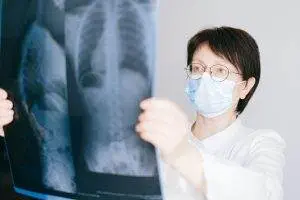
It is important to seek treatment if you believe you have pneumonia, because it can become very serious very quickly. First, doctors will do testing to determine what is causing the pneumonia. They will probably perform an x-ray to see where the lungs are inflamed.
Bacterial forms of pneumonia are typically treated with antibiotics, usually some form of amoxicillin. Pneumonia antibiotics cannot help if you have viral pneumonia, although some doctors may recommend medicines like Tamiflu, to help with symptoms.
Recovering from pneumonia takes time, no matter what kind of medication you take. It is normal to feel very tired, possibly for up to a month, or more. Rest, and drink lots of liquids, reduce your workload, and accept help whenever possible.
Acupuncture treatment and Chinese herb preparations can be very helpful for helping facilitate a more comfortable recovery from pneumonia.
Can Acupuncture Help Pneumonia?
According to TCM theory of disease, pneumonia is considered an invasion of the lungs by dampness and heat that leads to the production of phlegm. Wind and heat cause the fever and chills and sweating associated with the pneumonia.
TCM treatment for pneumonia can help on multiple levels: first, by addressing the infection in the lungs, second, by alleviating respiratory and gastrointestinal symptoms, and third, by helping to offset any negative side effects of conventional medical treatments.
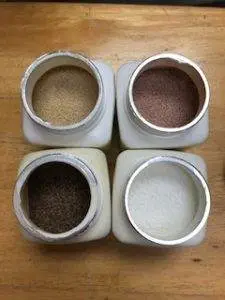
Chinese herbal formulations can help to clear heat and congestion from the lungs, reduce fever, and relieve coughing. One study observed two groups of pneumonia patients: both groups were given conventional antibiotics, but one group also received acupuncture herbs, which increased the total effectiveness rate by 10%.
Acupuncture was found to help patients who were hospitalized with severe pneumonia, reducing the amount of time they needed to be on ventilator machines and improving their symptoms.
Another study of children being treated in the hospital for pneumonia found that those who had acupuncture treatment had shorter hospital stays and needed less medication.
TCM works effectively as preventive medicine, so coming in for a regular “acupuncture tune-up” can help you avoid the seasonal colds and flus that can turn into pneumonia. It can also help immunocompromised people and those at higher risk of aspiration pneumonia due to neurological conditions avoid becoming ill.
Acupuncture Near Me for Pneumonia
If you are experiencing fever, chest pain when coughing, extreme fatigue, sweating, and/or looking blue around the lips, do not hesitate to get medical attention. Pneumonia requires urgent care. Once diagnostics have determined whether you have bacterial pneumonia or some other type, then it can be beneficial for you to add integrative care in the form of acupuncture and herbs to your recovery program. TCM methods can help clear phlegm from your lungs and help you regain your strength.
*This article is for education from the perspective of Traditional Chinese Medicine only. The education provided by this article is not approved by FDA to diagnose, prevent, treat and cure human diseases. It should not stop you from consulting with your physician for your medical conditions. Traditional Chinese Medicine is based on Qi, which is an invisible force that usually cannot be observed by modern science. Because science focuses on testing ideas about the natural world with evidence obtained through observation, these aspects of acupuncture can’t be studied by science. Therefore acupuncture and Chinese herbs are often not supported by double-blind, randomized trials, and they are considered alternative medicine therapies in the United States.
How to Treat Celiac Disease With Acupuncture and TCM
By Qineng Tan, L.Ac., Ph.D. & Xiaomei Cai, L.Ac., Ph.D.
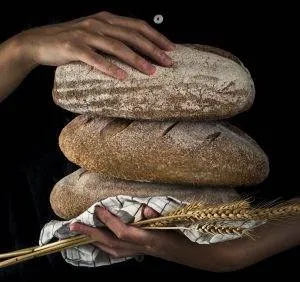
Do you have digestive problems like a bloated stomach, diarrhea, and abdominal pain? Unintentional weight loss, fatigue, skin rashes? These can all be signs of Celiac disease. Different from food allergies, Celiac is a serious autoimmune disorder that can lead to malnutrition and other debilitating health problems. TCM herbs and acupuncture treatment offer a good alternative way of managing Celiac disease and gluten intolerance symptoms.
In recent years, you have probably heard a lot of people saying they are switching to a gluten free diet because they have a gluten allergy or gluten intolerance. Sometimes people may just be trying to see if they feel better when they cut out wheat products, or they are going on a low carb diet to help them lose weight. Other people may be experiencing symptoms like diarrhea and nausea and hope that going on an IBS diet will help.
What is gluten? Gluten is a protein that is present in some grains, including wheat, barley, and rye. When a person has Celiac disease, gluten is perceived by the immune system as a dangerous foreign substance, triggering an immune response. Antibodies (white blood cells) are produced as a reaction to gluten entering the body, and the antibodies end up causing inflammation and damage to the inside of the intestinal tract.
This damage to the small intestine is called villous atrophy, and this is what causes inflammation and malabsorption of nutrients, leading to the myriad symptoms of Celiac. Celiac symptoms vary widely, and can include both digestive problems, and other conditions, like anemia, that stem from the lack of proper nourishment to the body.
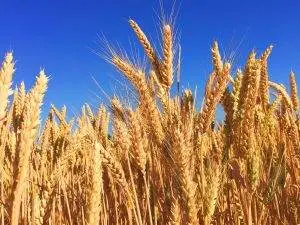
There is such a thing as a true wheat allergy, which for some people causes respiratory problems like difficulty breathing and nasal congestion, and other allergy symptoms like swelling and itching around the mouth and throat, hives or other itchy skin rashes, and headaches. Wheat allergies are a response to chemical compounds in wheat, which is found in a wide variety of food products. In some cases, exposure to wheat can cause anaphylaxis, which requires emergency medical attention because it can involve trouble breathing and swallowing, chest tightening, throat swelling, dizziness, and fainting.
Some doctors now recognize gluten intolerance or non-celiac gluten sensitivity as a separate condition from Celiac disease. For some people, gluten causes an immune response and symptoms, but not the same kind of damage to the intestines that Celiac does. If gluten intolerance is suspected, then following a gluten free diet for a period of time and noticing if symptoms clear up is usually the recommended course of action.
Celiac disease tends to run in families, and so is considered to be passed genetically. People can begin to show signs of Celiac at any age. It is estimated that at least 1% of the population has Celiac disease, but that number may be significantly higher, as it is still not a very well understood condition. Many people who have Celiac disease are unaware of it, or have been misdiagnosed with other conditions. Researchers believe that the incidence of Celiac disease is increasing worldwide, probably due to some environmental factors.
Acupuncture and TCM herbs provide a holistic way to treat Celiac disease, relieving the painful symptoms and providing detailed guidance for lifestyle and dietary changes that can help people manage Celiac and gluten intolerance. Nutrition is considered to be one of the primary branches of TCM, along with acupuncture and herbs. A TCM practitioner will be able to give you dietary recommendations far beyond just telling you to eat gluten free foods.
Top 10 Celiac Disease Symptoms
People can experience a variety of gluten intolerance symptoms, including digestive problems, allergy symptoms like skin rash, and other symptoms related to nutritional deficiency, like anemia and weight loss. Signs of gluten intolerance may be different in children, who are more susceptible to malnourishment that can lead to a failure to thrive.
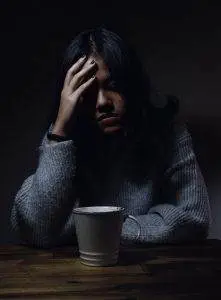
Celiac symptoms include:
- Fatigue
- Weight loss
- Diarrhea, pale colored stools, foul-smelling, fatty, greasy stool
- Abdominal bloating, bloated stomach, gas, stomach pain, abdominal pain
- Nausea, vomiting
- Constipation
- Headache, headaches, migraines, migraine headaches
- Skin rash, mouth ulcers, mouth sores, canker sores
- Neuropathy, numbness or tingling in hands and feet, problems with balance, joint pain
- Cognitive problems, foggy head, difficulty concentrating
Celiac can lead to SIBO, anemia, iron deficiency, loss of bone density (osteoporosis), weak bones, soft bones, bone loss (osteopenia), joint pain, or arthritis. People can also have liver problems, including fatty liver.
Dermatitis herpetiformis is a specific type of skin rash that causes itching and blisters to appear, primarily on the knees, elbows, torso, top of the head, and buttocks.
Women may find that celiac disease affects their hormones, menstrual periods, and can have an impact on fertility, even causing recurrent miscarriages.
Celiac disease can also contribute to infertility and low sperm count in men.
When a child develops celiac disease, the inability to absorb nutrients from food can cause problems with normal growth, such as short stature, delayed puberty, and damage to tooth enamel. Developmental disorders and behavioral issues can also be related to celiac, like ADD/ADHD and irritability.
In extreme cases, Celiac can cause seizures.
Celiac Disease Diagnosis and Treatment
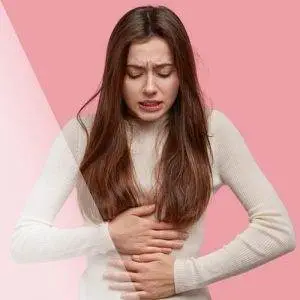
Going through the process of being diagnosed with Celiac disease or gluten intolerance is quite complicated and involves multiple tests. From the medical standpoint, it is best that you do not eliminate gluten or change your diet before the testing, so that it can accurately show how gluten is affecting your immune system and your intestines.
First, you will probably have a blood test that looks for certain antibodies that would indicate an autoimmune reaction to gluten. Some people may test negative for antibodies, and yet still have Celiac, though, so this blood testing is not enough to be conclusive. Genetic testing may be done, which looks for specific antigens to rule out Celiac. If testing shows that a person has antibodies, and they also have a specific type of skin rash (dermatitis herpetiformis), that is usually enough for a doctor to give an official diagnosis of Celiac disease.
Endoscopy is an imaging test which uses a little camera to see if there is damage to the intestinal lining. They will also take some tissue samples from the lining of the intestine to check for inflammation and damage. The results of these tests may lead to a formal Celiac diagnosis. People will often need to have an endoscopy to find out if they have Celiac disease, and then possibly repeated endoscopies to see if the inflammation is getting better or worse.
Sometimes people will try figuring out what is going on themselves with a food sensitivity test or food intolerance test kit that you can do at home and send in for results. Food allergy testing may give you some information as to whether you have a reaction to a specific allergen (egg allergy, milk allergy, peanut allergy, shellfish allergy) or have a food sensitivity, but they cannot tell you if you really have Celiac disease or gut inflammation.
Going through the diagnostic process for autoimmune diseases like Celiac disease can be exhausting in and of itself. Meanwhile, you aren’t yet getting treatment for your symptoms. The only treatment available in conventional medicine for Celiac disease really is to follow a gluten free diet. Most doctors are not able to do much beyond give you a list of foods you shouldn’t eat, or refer you to a dietitian.
TCM has the ability to provide more comprehensive care for people with Celiac disease, and many other autoimmune conditions. Acupuncturists are highly trained professionals when it comes to offering patients detailed guidance for following an effective Celiac disease diet.
Can Acupuncture Help Celiac Disease and Gluten Intolerance?

TCM has more to offer than just acupuncture treatment and herbal medicine. Nutrition is one of core competencies every TCM practitioner must master.
Acupuncture treatment can help relieve digestive symptoms like abdominal pain and bloating, and also have a positive impact on the system malfunctioning that leads to autoimmune reactions. With Chinese herbs, we are able to get very potent nutrients into the body that wouldn’t normally come from food. For people with Celiac, or other problems like food allergies or sensitivities, malnutrition due to malabsorption is a real problem.
A TCM nutrition approach can help restore the body’s health with foods and herbs better than a simple elimination diet for Celiac disease can. An acupuncturist listens carefully to the particular symptoms and sensations you describe. These provide important clues as to which organ systems are involved, and where yin and yang are out of balance. Then TCM provides a framework for tailoring the treatment and food plan for Celiac disease to each individual’s needs.
According to TCM theory, the stomach and spleen are responsible for digesting food. Celiac disease symptoms are, according to a typical TCM diagnosis, related to a spleen deficiency. When Qi in the spleen is weak, the body is not getting the nutrients it needs. Building up the strength of the spleen will often be the focus of the acupuncture portion of the treatment. Herbs and specific nourishing foods will be recommended, which will help anemia and soothe the digestive tract.
Acupuncture Near Me For Celiac Disease, West Los Angeles
Autoimmune diseases like Celiac disease can be especially frustrating because they seem to take over your whole life. Not only physical health, but mental health is compromised. Treatment options are limited. Fortunately, TCM offers a complementary form of medicine that is able to provide multi-faceted care for autoimmune disorders like Celiac, including: Crohn’s disease, Type 1 diabetes, hyperthyroidism, Lupus, rheumatoid arthritis, fibromyalgia, and multiple sclerosis (MS). Acupuncture treatment can help reduce feelings of anxiety and depression as you learn to manage your illness.
If you or someone you know has been suffering from digestive issues, and you suspect it may have something to do with gluten intolerance or Celiac disease, be prepared to go through testing, but also give some thought to adding a TCM provider to your health care team. At Art of Wellness, we have over 35 years of providing excellent care through TCM treatments, including expert nutrition services. It is like getting an acupuncturist and dietitian in one.
*This article is for education from the perspective of Traditional Chinese Medicine only. The education provided by this article is not approved by FDA to diagnose, prevent, treat and cure human diseases. It should not stop you from consulting with your physician for your medical conditions. Traditional Chinese Medicine is based on Qi, which is an invisible force that usually cannot be observed by modern science. Because science focuses on testing ideas about the natural world with evidence obtained through observation, these aspects of acupuncture can’t be studied by science. Therefore acupuncture and Chinese herbs are often not supported by double-blind, randomized trials, and they are considered alternative medicine therapies in the United States.